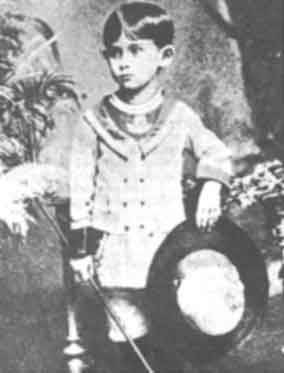Franz Kafka is widely recognized as one of the most influential literary voices of the 20th century, known for his ghostly exploration of isolation, bureaucracy, and existential fear. Born in Prague in 1883, Kafka lived a calm and often disturbed life, yet his writing has left a permanent impact on modern literature and thought. Although most of his work was unpublished during his lifetime, his unique story style and real, dreaming subjects gained global recognition after his death. Their stories often contain common people caught in nightmares and absurd situations, which reflect their own internal conflicts and complications of modern society. The word "Kafkaesque" has entered everyday language to describe such oppressive or irrational experiences. In this article, we examine Kafka's early life, his complex personal and professional trips, and major literary works that have earned him a permanent place in literary history. His legacy remains as powerful as usual.
Check Out: Complete List of Helen Keller Books: Check Novels, Short Stories, Journals and More
Early Life of Franz Kafka

Franz Kafka entered the world on July 3, 1883, in Prague, then a constituent of the Austro-Hungarian Empire. He was the eldest of six children from a middle-class Jewish family. His father, Hermann Kafka, was something of an entrepreneur, successful but domineering, and his mother, Julie Löwy, was more refined and educated. Kafka’s rocky relationship with his father pervaded his writing. He was raised speaking German, was fluent in Czech, and picked up Hebrew in adulthood. Kafka participated in rigorous German schools before enrolling at Charles University in Prague, where she studied the law. Kafka's heart was with literature. He met his lifetime friend Max Brode at the university, who would become important in preserving Kafka's corpus after his death. His adolescence was marked by a question, personal conflict, and family obligation.
Major Works of Franz Kafka
The most notable works of Kafka include:
The Metamorphosis (1915)
Metamorphosis (1915) is a famous novel by Franz Kafka, a specialized salesman, Gregor Samsa, who wakes up one morning to find that he has turned into a large insect. The story delays the concepts of the weight of disconnection, selfishness, and obligation, providing a terrible depiction of solitude between domestic and professional existence.
The Trial (1925)
The Trial is one of the most famous novels of Franz Kafka, posthumously published in 1925. The story depicts Joseph, who is arrested without clarification and is trapped in a nervous legal system. The novel examines the subjects of power, isolation, and non-equality of rights, which reflect the criticism of modern bureaucracy and existential uncertainty.
The Castle (1926)
The Castle follows a land surveyor, who comes to a remote city ruled by a mysterious and inaccessible authority called "The Castle". There is a desire to be identified and to create an understanding of the village through dignitaries within the palace. He runs into endless obstacles, Merky rules, and indifferent bureaucrats. The book has an investigation into a disappointing discovery of man for separation, isolation, non-equality of power and meaning, and acceptance. The palace reflects a dreamy world where logic is elusive and bureaucracy is impervious.
Short Stories
Here are the most famous short stories by Franz Kafka.
In the Penal Colony (1919)
Set in a brutal, unnamed penal colony, this chilling story explores themes of justice, punishment, and blind obedience to authority through the use of a grotesque execution machine.
A Hunger Artist (1922)
This story follows a professional whose art form is obsolete and misunderstood. It shows isolation, misunderstanding of talent, and changing values of society.
The Judgment (1912)
A semi-biographical story consisting of a young man, his father, and a mysterious condemnation. It discovers the generational struggle, crime, and the power of the father.
Comments
All Comments (0)
Join the conversation